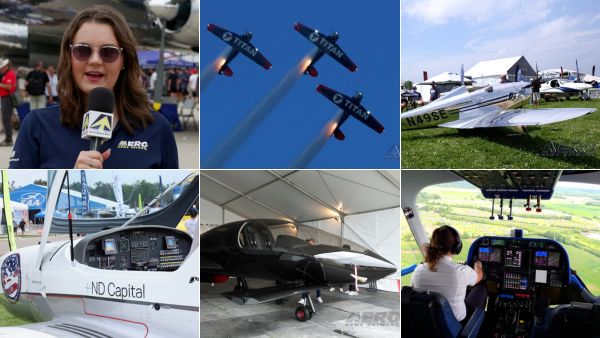Airlines Struggle For Answers Amid Rising Costs, Low Fares
Prompted by the surge
in Jet-A prices following Katrina, the major domestic air carriers
have asked the Department of Transportation for some temporary
relief: an exemption from the 7.5 percent excise tax imposed on
each leg of a flight on a domestic airline. Customers wouldn't see
any ticket savings in such a move, but it would give room for the
carriers to then add a surcharge to cover their increased fuel
costs.
The response from the DOT? Ah, no.
According to Reuters, Transportation Secretary Norman Mineta has
all but closed the door on the proposal, saying that the current
tax law does not allow such a move. Any exemptions would also need
congressional approval, something that has yet to be sought by the
administration.
To soften the blow somewhat, Mineta is considering a rollback of
the tax paid by the airlines on fuel, equal to 4.4
cents-per-gallon. The move already has the support of several US
senators with ties to aviation.
However, such a measure might only be a stopgap solution, doing
little to ease the financial burdens on domestic carriers. Even
before Hurricane Katrina wiped out nearly 13 percent of all jet
fuel production in the Gulf Coast region, industry analysts were
expecting losses of over $7 billion this year alone.
Prices for Jet-A jumped
nearly 50 cents a gallon in the past two weeks. Considering those
prices were already at all time highs before the hurricane, it's
hardly shocking that industry fuel costs could top $30 billion this
year, according to the Air Transport Association.
Most carriers were struggling for profitability long before
today's high fuel prices and the still-unforeseen full impact of
Hurricane Katrina. United Airlines has been scrambling to emerge
from bankruptcy since 2002, US Airways is currently restructuring
under Chapter 11, and two more major carriers (Delta and Northwest)
are teetering on the brink of it.
On Wednesday, Northwest Airlines announced suspension of their
daily JFK-Tokyo(Narita) run as of October 2, citing high fuel
prices. "Unfortunately, the record-high cost of fuel, a challenge
facing the entire airline industry, is severely affecting the
financial viability of some routes and forcing us to make some
difficult decisions," said Northwest VP Phil Haan.
It's also no secret that the costs of doing business for
airlines has risen far faster, especially of late, than passenger
willingness to shoulder some of that burden in the form of higher
ticket costs.
Even with fees added for post 9/11 security (we'll debate the
dubious returns on that particular investment later) and
ever-present taxes (ditto) that can make up almost 1/4 the cost of
a ticket, larger carriers like United are nearly always locked in
some form of fare war with low-cost carriers such as JetBlue and
Southwest, maintaining artificially low ticket prices in order to
retain their market market share.
While that is certainly to the passenger's benefit in the short
term, there's also the fact that any rewards would be moot if
competing airlines were to then go under completely.
After all, there's only so much money to be made from cramming
as many seats as allowed by the Geneva convention onboard a 737 --
and then three more -- just as the removal of free "meals" and
pillows onboard domestic flights can only net so much in
savings.
 Airborne 07.21.25: Nighthawk!, Hartzell Expands, Deltahawk 350HP!
Airborne 07.21.25: Nighthawk!, Hartzell Expands, Deltahawk 350HP! ANN's Daily Aero-Term (07.27.25): Estimated (EST)
ANN's Daily Aero-Term (07.27.25): Estimated (EST) ANN's Daily Aero-Linx (07.27.25)
ANN's Daily Aero-Linx (07.27.25) NTSB Final Report: Luce Buttercup
NTSB Final Report: Luce Buttercup Classic Aero-TV: 'That's All Brother'-Restoring a True Piece of Military History
Classic Aero-TV: 'That's All Brother'-Restoring a True Piece of Military History


